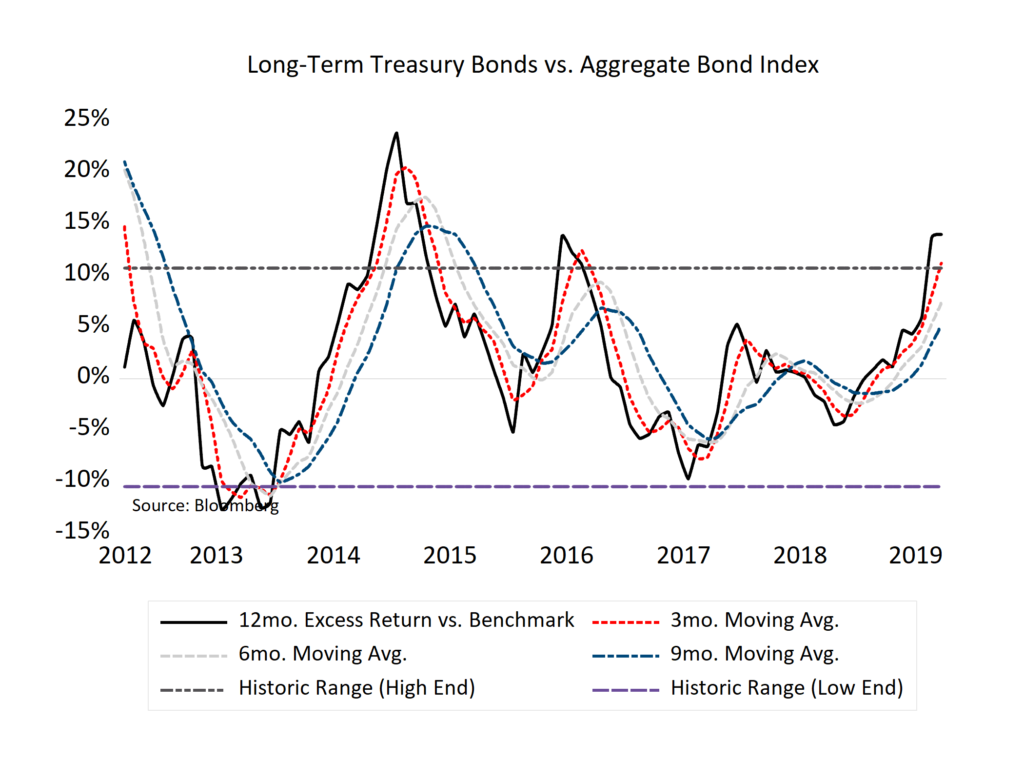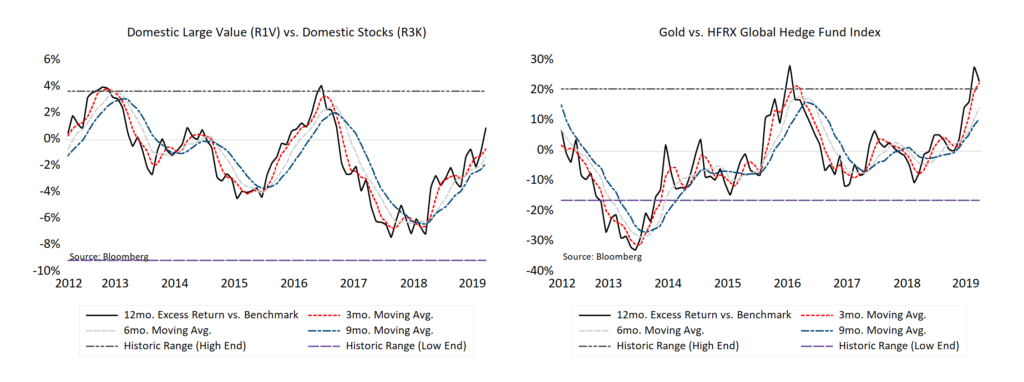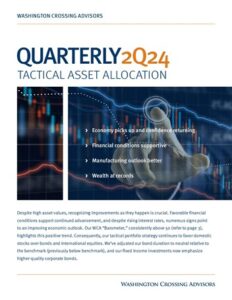Things Look Good (On the Surface)
The Dow Jones Industrial Average and the S&P 500 are up 15% and 20%, respectively, for the year, driving the value of U.S. stocks to a record of $32 trillion. United States’ household’s net worth is $113 trillion, far eclipsing the past peak of $71 trillion back in 2007 at the height of the housing bubble. Better domestic growth than elsewhere around the world, flush corporate profits, and accommodating capital markets are all positives for U.S. investors. These conditions have gone a long-way to lift asset values to today’s levels.
Diving Rates — Blessing or Curse?
The rise in asset values is helping to sustain economic momentum through more spending and jobs. The recent drop in interest rates drove the national average for 30-year mortgages down to 3.75% from 4.75% a year ago, for example. A year ago, mortgage and other rates were climbing, threatening to dampen borrowing and spending. The headwind of rising interest rates is now a tailwind as falling rates should help sustain borrowing.
Some attribute the fall in global interest rates through the early part of 2019 through mid-August to faltering growth around the world. All across the globe, bond yields plunged to record lows. The amount of negative-yielding global soared to $17 trillion from essentially nothing prior to 2015. Since August, the global value of negative yielding has declined somewhat to around $13 trillion. The phenomenon of negative rates at all, much less for trillions of dollars of outstanding debt, remains a puzzle and the intuition is hard to grasp. Whatever the cause, the sharp fall in long-term bond yields meant that returns on long-dated sovereign debt, like U.S. Treasuries, continued to dominate returns across the bond spectrum for most of the past year (chart A, below). Investors who opted to shorten maturities a year ago, fearing Federal Reserve rate increases, missed the boat.
Chart A

Beyond Bonds
Plunging yields had a significant impact on the relative performance of other assets, too. For the twelve months ended September 30, 2019, domestic large-cap value stocks eked out a small outperformance versus growth stocks (chart B, below left). Gold also rallied and outpaced other non-correlated assets such as global hedge funds (chart C, below right). Continued outperformance by long-term Treasuries and gold, both positively correlated with economic and political uncertainty, would be a troubling omen, especially after already significant rallies.
Charts B & C

Conclusion
Our read of incoming data points to some softening in growth momentum from earlier this year. Tension and uncertainty over U.S. – China trade dispute and Brexit, are weighing on the outlook. At the same time, the lagged stimulative effect of recent central bank moves on rate-sensitive areas of the economy appear to be taking hold. The tug-of-war between these forces has led to a neutral near-term tactical weighting between stocks and bonds in CONQUEST portfolios at this time.
Kevin
Caron, CFA, Senior Portfolio Manager
Chad Morganlander, Senior Portfolio Manager
Matthew Battipaglia, Portfolio Manager
Steve Lerit, CFA, Client Portfolio Manager
Suzanne Ashley, Analyst
(973) 549-4168
www.washingtoncrossingadvisors.com
www.stifel.com
Disclosures
WCA Fundamental Conditions Barometer Description: We regularly assess changes in fundamental conditions to help guide near-term asset allocation decisions. The analysis incorporates approximately 30 forward-looking indicators in categories ranging from Credit and Capital Markets to U.S. Economic Conditions and Foreign Conditions. From each category of data, we create three diffusion-style sub-indices that measure the trends in the underlying data. Sustained improvement that is spread across a wide variety of observations will produce index readings above 50 (potentially favoring stocks), while readings below 50 would indicate potential deterioration (potentially favoring bonds). The WCA Fundamental Conditions Index combines the three underlying categories into a single summary measure. This measure can be thought of as a “barometer” for changes in fundamental conditions.
The information contained herein has been prepared from sources believed to be reliable but is not guaranteed by us and is not a complete summary or statement of all available data, nor is it considered an offer to buy or sell any securities referred to herein. Opinions expressed are subject to change without notice and do not take into account the particular investment objectives, financial situation, or needs of individual investors. There is no guarantee that the figures or opinions forecasted in this report will be realized or achieved. Employees of Stifel, Nicolaus & Company, Incorporated or its affiliates may, at times, release written or oral commentary, technical analysis, or trading strategies that differ from the opinions expressed within. Past performance is no guarantee of future results. Indices are unmanaged, and you cannot invest directly in an index.
Asset allocation and diversification do not ensure a profit and may not protect against loss. There are special considerations associated with international investing, including the risk of currency fluctuations and political and economic events. Investing in emerging markets may involve greater risk and volatility than investing in more developed countries. Due to their narrow focus, sector-based investments typically exhibit greater volatility. Small company stocks are typically more volatile and carry additional risks, since smaller companies generally are not as well established as larger companies. Property values can fall due to environmental, economic, or other reasons, and changes in interest rates can negatively impact the performance of real estate companies. When investing in bonds, it is important to note that as interest rates rise, bond prices will fall. High-yield bonds have greater credit risk than higher-quality bonds. The risk of loss in trading commodities and futures can be substantial. You should therefore carefully consider whether such trading is suitable for you in light of your financial condition. The high degree of leverage that is often obtainable in commodity trading can work against you as well as for you. The use of leverage can lead to large losses as well as gains.
All investments involve risk, including loss of principal, and there is no guarantee that investment objectives will be met. It is important to review your investment objectives, risk tolerance and liquidity needs before choosing an investment style or manager. Equity investments are subject generally to market, market sector, market liquidity, issuer, and investment style risks, among other factors to varying degrees. Fixed Income investments are subject to market, market liquidity, issuer, investment style, interest rate, credit quality, and call risks, among other factors to varying degrees.
This commentary often expresses opinions about the direction of market, investment sector and other trends. The opinions should not be considered predictions of future results. The information contained in this report is based on sources believed to be reliable, but is not guaranteed and not necessarily complete.
Washington Crossing Advisors LLC is a wholly owned subsidiary and affiliated SEC Registered Investment Adviser of Stifel Financial Corp (NYSE: SF).



